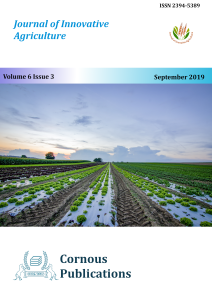Sulphur (S) plays an important role particularly in the nutrition of Oilcrops as it is a key element of S containing amino acids. Sulphur is a constituent of three amino acids commonly found in plants viz., cystine, cysteine, and methionine, which are essential components of proteins. Sulphur increase the oil content and gives pungency to oil as it forms certain disulphide linkages. Oil seeds crops like sesame, sunflower, groundnut etc., require more sulphur than cereals as their oil storage organs are mostly protein, rich in sulphur. Certain types of bacteria are able to oxidize, reduced form of sulphur which is unavailable to plants into available form. These types of bacteria are called as Sulphur Oxidizing Bacteria (SOB), which can live in very different environments, from deep in the ocean to freshwater marshes. One of the best examples of SOB is a genus Thiobacillus i.e., Thiobacillus thiooxidans, Thiobacillus ferrooxidans, Thiobacillus thioparus, Thiobacillus novellus. SOB generally improves the production or the conversion of the elemental sulphur to the sulphate (SO4-2) for absorption and results in the plant growth promotion and production process. Because of applying Sulphur Oxidizing Bacteria (SOB) to oilcrops, an amount of available sulphur to the plant is increased, this in turn helps to enhance the oil seed production and productivity.
